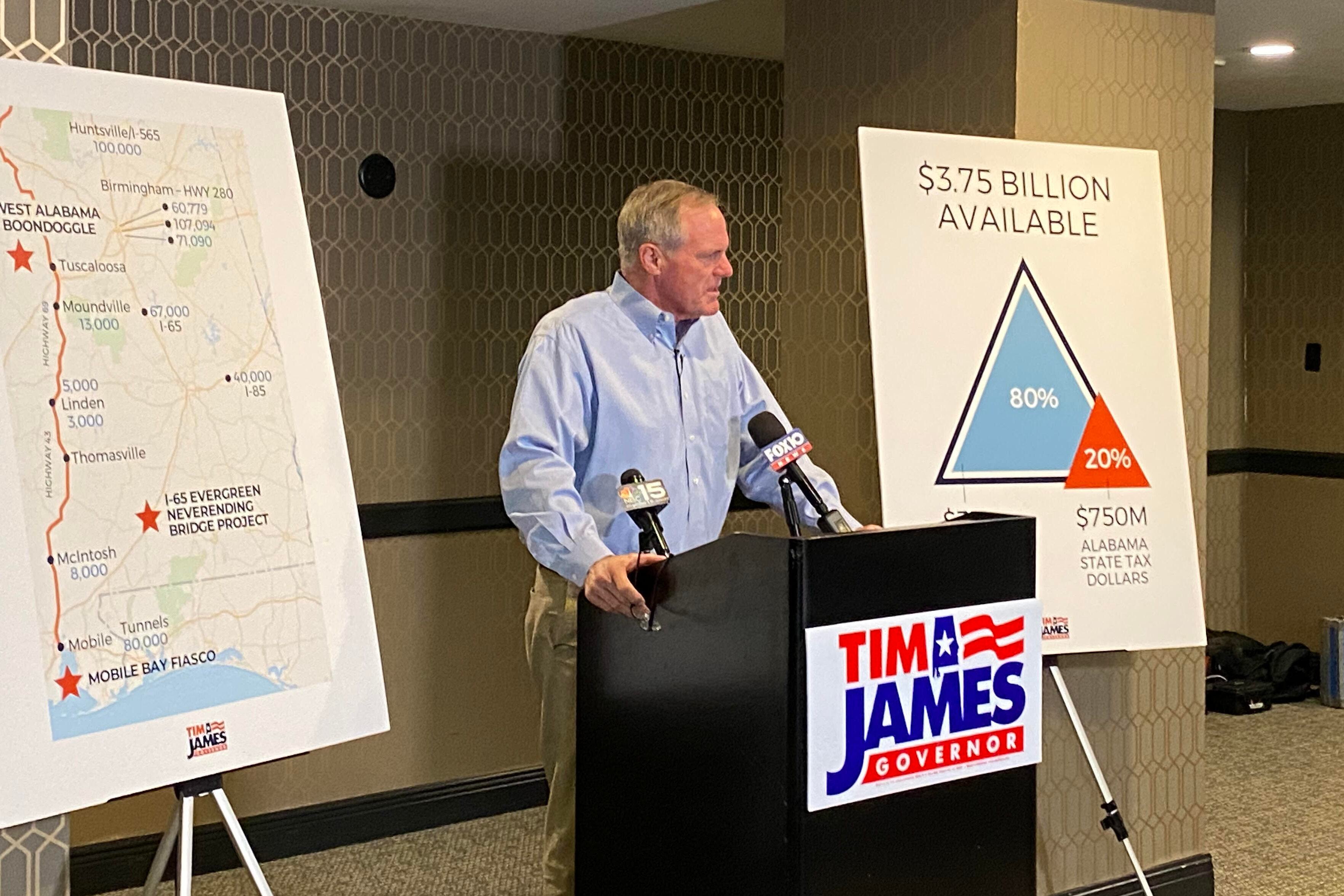As 1819 News previously reported, former gubernatorial candidate Tim James has a unique perspective in a legal battle going on between Alabama Department of Transportation (ALDOT) director John Cooper and the Baldwin County Bridge Company (BCBC).
James and his partners developed the toll bridge over the Intercoastal Waterway in Baldwin County. BCBC owns that bridge, and the bridge company filed a lawsuit against Cooper when the state decided to build a new state-owned bridge nearby at Cooper's direction.
The original agreement for the toll bridge was for the private company to raise private funds to build a much-needed bridge over the waterway. In exchange, the state would allow the bridge company to charge a toll. But if another bridge nearby does not charge a toll, BCBC claims it will be forced into bankruptcy. The judge already ruled Cooper was acting in bad faith when he made the decision to build the bridge, but that decision is under appeal in the Supreme Court of Alabama.
Although James' company sold the BCBC bridge in 2006, he has weighed in on the bridge lawsuit, saying he thinks Cooper should be held personally responsible for wasting taxpayer dollars on a bridge where construction is currently halted.
"Cooper testified under oath that he had not discussed the 'bridge' situation with the Governor in six years, since 2017," James told 1819 News. "I have no reason to doubt that Cooper's testimony is likely true because this is how it's done. They communicate through a middleman; it's called plausible deniability; nothing new about that. That gets us to the deeper question, 'Since 2017, and after public articles and public hearings on the bridge matter were reported in the press, did Cooper discuss his bridge plans with any senior members of the governor's office and if so 'who' and did they direct him to continue down this road that has already cost taxpayers tens of millions of dollars?' If the answer is yes, then the question is, 'Who in the governor's office did Cooper discuss his toll bridge plan with?' If Cooper did not take orders from anyone in the Governor's office, that means he truly went it alone and should be held financially, liable personally for the millions he has cost the taxpayers."
James said although it appears ALDOT has wasted a "fortune" in taxpayer dollars on a bridge that is not being built, he believes the real issue is the "abuse of police powers" when the state used the power of eminent domain to claim property.
"Police powers are all powers of government, including the power of eminent domain, which is the power to take people's property against their will even though they get paid for it," said James. "Condemnation of private property can only be used for legitimate public uses and there are clear tests that must be met before condemnation can be used. It's obvious from the court ruling that the reason for the bridge had little to do with fixing traffic, but had everything to do with going after a business that Cooper disliked which was a private toll bridge. You may not like toll bridges but this same injustice could happen to anybody that's a target of the director of transportation including gas station, hotel, or shopping center owners."
Cooper claimed a new bridge was needed to alleviate traffic and for hurricane evacuations. But the court stated that he acted in bad faith, meaning that was not the true motive behind building the new bridge. James said the BCBC could fight the decision, but he also said smaller entities or individuals might not have the resources to challenge the DOT in court.
"A DOT director could create a situation to condemn a citizen's home that he dislikes and then dream up a reason to justify it," he said. "The DOT director operated in bad faith as stated by the court, but the meat of this situation is if the state of Alabama builds a bridge with a motive to put a legally operating company out of business and under a hidden cloak of bad faith, this is what is known as an inverse condemnation.' Where inverse condemnation exists, any company, whether a gas station, hotel or private toll bridge should be paid full market value for their business. In this case, the Director of Transportation went after a company that had the means to fight back in court, and so he got caught in his own trap. If Cooper had attacked a mom-and-pop or a small company, one without substantial funds, it's likely a smaller entity would have been steamrolled by the weight of the Department of Transportation. This is why this case matters."
Meanwhile, Cooper found himself in some legal trouble in north Alabama after a man who owns property close to his own property pressed charges for harassment against him. The man told 1819 News that Cooper threatened him with a gun and told him he would "whoop" his "fat ass." The neighbor, who asked to remain anonymous, said Cooper then told him he wasn't worth the cost of a bullet.
James has also been following developments on the recent legal drama.
"My only comment about this is if you're going to make a threat, at least make it original," said James. "I think he stole that line from a movie."
ALDOT has refused to comment on James' claims.
To connect with the author of this story or to comment, email erica.thomas@1819news.com.
Don't miss out! Subscribe to our newsletter and get our top stories every weekday morning.










